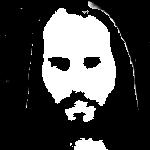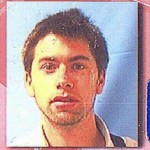Digital Humanities Initiative
Welcome! And please, tell us about yourselves!
Tagged: cunydhi
- This topic has 16 replies, 9 voices, and was last updated Sep 29, 2010, 4:05 pm by .
-
AuthorPosts
-
September 21, 2010 at 5:16 pm #20248
 Marcos WasemParticipant
Marcos WasemParticipantMy name is Marcos Wasem, some already know me around here. I’m a student in the Ph.D. Program in Hispanic and Luso-Brazilian Literatures and Languages. I have been involved in publishing projects here at the Graduate Center using Open Journal Systems, like LL Journal (http://lljournal.gc.cuny.edu) and currently in a journal in poetry and new media published with the support of the New Media Lab (http://is.gd/flRYK). I’m interested in the exploration of the possibilities open by open source and free software, and the project that I’m currently developing at the New Media Lab is entirely based in software available in Linux, more specifically Ubuntu. I also had the chance to participate in the organization of the conference The Digital University last semester.
My own research focuses in Latin American literature in the late 19th. century. Of course there was no digital literature back then, but I am very interested in how what back then were the new technologies shaped literary creation: new printing techniques, the introduction of photography, the creation of devices for sound recording, and so on. The current situation, in which digital technologies affect the ways literature is created and distributed, helps me understand how new techniques affected literature one century ago.September 29, 2010 at 4:05 pm #20249 Christopher LearyMember
Christopher LearyMemberHello everyone. My name is Chris Leary. I’m a student in the English Department and staff member at the New Media Lab. I missed the first meeting but hope to make it to others.
I followed some links sent by Charlie today and ended up on the website for the Scholarly Communications Institute. They just released an executive summary of the SCI 8 meeting on experimental models for scholarly communication. I attached it to this post in case anyone is interested.
The thing that stuck out to me — because of my interest in anthologies as a genre and as a form of writing that can be taught in composition classroom — was the term “stewardship.” The writers of this executive summary said that scholars in the digital humanities need to increasingly take on the role of stewards in digital scholarship. Stewards, they say, are editors and compilers and archivists and anthologizers and curators. They make “thematic collections.” Typically, in the humanities, editing has not been a prestigious activity and it has not been viewed as real scholarship. That needs to change (in the opinion of SCI) because if humanities scholars do not act as stewards, then that role will be left to librarians and system engineers, who do not have the same content knowledge. Humanities scholars need to intervene in that work, but if it is not regarded and rewarded as scholarship, then it won’t happen as much as we need it to.
From my point of view, as a teacher of writing, I would add that, not only do humanities scholars need to perform stewardry on the web, they also need to mentor students on this practice — it needs to be part of the composition that we teach in writing classrooms and elsewhere. Stewardry, sometimes seen as pre-critical, is clearly rhetorical and argumentative. Given that many of our students will have been “born digital,” the mentorship will likely go in both directions.
Before reading this executive summary, I’d never heard this word “stewardship” used in this context but I liked it. All of its precursors — editing, curating, anthologizing, archiving, compiling, aggregating, collecting — have fatal flaws when used in digital contexts. Does anyone know where I can read more about digital stewardship? I was hoping for some citations in the executive summary but it didn’t have any.
Attachments:
You must be logged in to view attached files. -
AuthorPosts
You must be logged in to reply to this topic.
Need help with the Commons?
Email us at commonshelpsite@gmail.com

